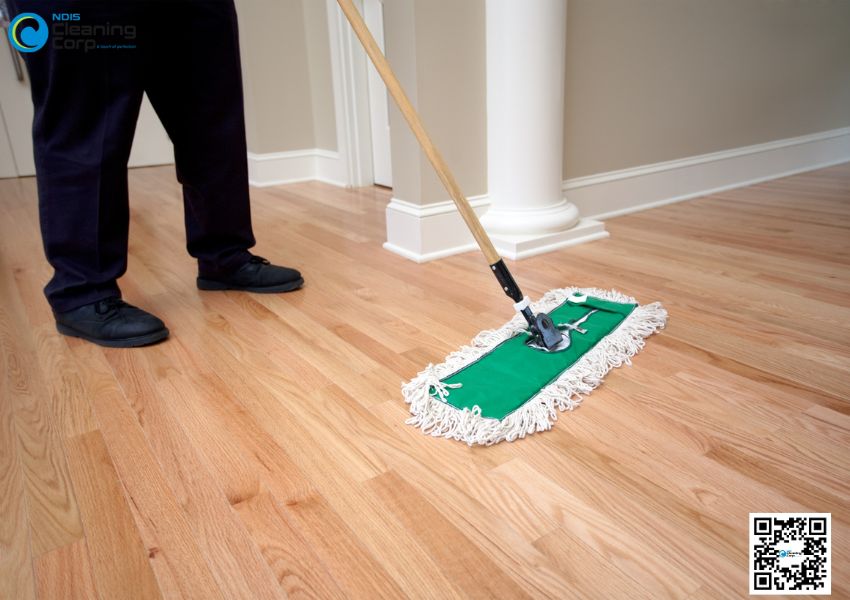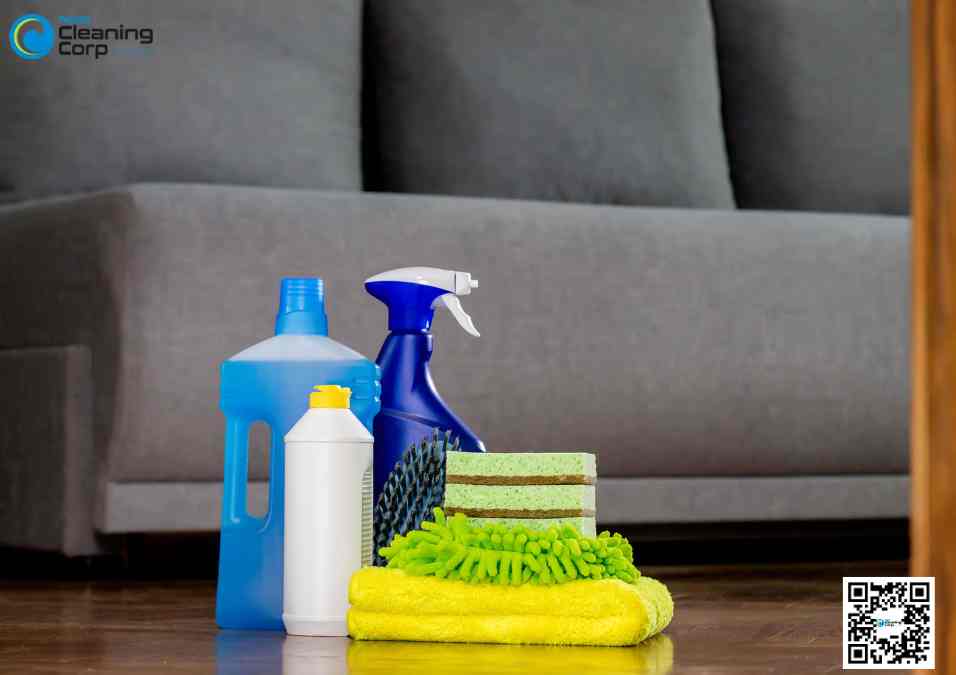Does the NDIS Fund Cleaning Services?
Yes. The NDIS does fund cleaning services — but it...
Understanding NDIS cleaning services is crucial, whether you are new to the National Disability Insurance Scheme (NDIS) or seeking to optimize your home cleaning routine. From dusting to deep cleaning, these services play a significant role in supporting people with disabilities and enhancing their quality of life.
NDIS cleaning services encompass a broad range of tasks designed to cater to the specific needs of individuals with disabilities. This guide will walk you through the various types of cleaning services available under the NDIS, from basic home cleaning tasks like dusting to more comprehensive solutions such as deep cleaning.

NDIS cleaning services are tailored to support individuals with disabilities, ensuring that their living environments are clean and healthy. These services are an integral part of the National Disability Insurance Scheme (NDIS), which provides funding for essential services that enhance the quality of life for people with disabilities.
These services fall under the broader NDIS plan and service agreement, which outlines the support available to NDIS participants. By integrating cleaning services into their plans, NDIS participants can maintain a clean home that meets their specific needs and personal preferences.
For instance, according to a study by the University of Melbourne, maintaining a clean living space significantly contributes to the well-being of individuals with disabilities, helping them to live independently and comfortably. The NDIS cleaning services ensure that participants receive the necessary cleaning support to manage their living environments effectively.
Basic cleaning services include fundamental tasks such as dusting and surface wiping. These essential tasks are designed to keep the living environment tidy and prevent the buildup of dust and dirt.
Dusting involves using a dust brush or a similar tool to remove dust from surfaces, including shelves, countertops, and other high-touch areas. Regular dusting is crucial for maintaining a clean home and minimizing allergens, which is particularly important for individuals with respiratory issues.
Surface wiping is another key aspect of basic cleaning. This task includes cleaning surfaces such as tables, countertops, and other flat areas using appropriate cleaning solutions. Regular surface wiping helps in maintaining hygiene and preventing the spread of germs.
NDIS cleaners are skilled in performing these tasks to meet the standard cleaning needs of participants. They ensure that basic cleaning is done efficiently, contributing to a well-maintained living space.
For example, a report from the Australian National University highlights that regular dusting and surface wiping can reduce allergens and improve indoor air quality, which is beneficial for individuals with allergies or respiratory conditions. The inclusion of these services in the NDIS plan helps participants achieve a cleaner, healthier environment.
Intermediate cleaning goes beyond basic tasks to include essential activities like vacuuming carpets and mopping floors.
Vacuuming is crucial for maintaining clean household surfaces. It helps remove dirt, dust, and allergens from carpets and rugs, contributing to a healthier living environment. Regular vacuuming is particularly important for individuals with respiratory conditions, as it reduces airborne allergens. According to research from the University of Sydney, regular vacuuming can significantly decrease the presence of indoor allergens, improving overall air quality.
Mopping is another key aspect of intermediate cleaning. It involves using a mop and cleaning solution to clean hard floors, such as tiles or laminate. Mopping helps in removing stains and grime that vacuuming alone cannot address. Regular mopping ensures that floors are free from spills, stains, and bacteria. The Australian Institute of Health and Welfare reports that maintaining clean floors through regular mopping reduces the risk of slips and falls, which is especially beneficial for individuals with mobility issues.
NDIS cleaning services ensure that vacuuming and mopping are performed consistently and effectively. These services are tailored to meet the health and well-being needs of participants, ensuring that their living spaces remain clean and safe.
Deep cleaning services offer a more comprehensive approach to maintaining a clean home. These services are designed to target hard-to-reach areas and perform intensive cleaning tasks that go beyond regular cleaning.
Carpet cleaning is a significant component of deep cleaning. It involves the use of specialized equipment and cleaning solutions to remove deeply embedded dirt, stains, and odors from carpets. The effectiveness of carpet cleaning in improving indoor air quality has been supported by studies from the University of New South Wales, which show that regular deep cleaning can reduce allergens and enhance overall air quality.
Bathroom sanitation is another critical aspect of deep cleaning. This process includes thorough cleaning and disinfecting of bathrooms, including sinks, toilets, showers, and floors. Effective bathroom sanitation prevents the growth of mold and bacteria, contributing to a healthier living environment. Research from the Australian National University highlights that regular sanitation reduces the risk of infections and improves overall hygiene.
Other specialized cleaning tasks in deep cleaning services may include cleaning behind appliances, washing windows, and scrubbing tiles. NDIS home cleaning providers focus on these comprehensive tasks to ensure that all areas of the home are thoroughly cleaned, improving the overall living environment.
Clean living spaces have a profound impact on health, well-being, and overall quality of life. For people with disabilities, maintaining a clean and organized home is crucial for physical and mental health.
NDIS cleaning services play a vital role in managing household chores and reducing stress for participants. By taking care of cleaning tasks, these services allow individuals to focus on other aspects of their daily lives, enhancing their overall quality of life.
Real-life examples demonstrate the positive effects of these services. For instance, a case study from the University of Melbourne showed that individuals with disabilities who received regular cleaning support reported lower levels of stress and improved wellbeing. The clean environment facilitated better management of their condition and contributed to a more positive outlook on life.
Selecting the right cleaning service provider involves careful consideration of several factors:
Tips for choosing the best NDIS cleaning service include researching provider options, reading reviews, and comparing services to ensure they align with your NDIS plan and personal requirements. Ensuring that the chosen provider meets these criteria will help you receive the necessary support to maintain a clean and healthy living environment.
Comprehensive NDIS cleaning services are essential for supporting individuals with disabilities.
From dusting to deep cleaning, these services are designed to enhance quality of life and ensure a healthy living environment.
Evaluating your cleaning needs and exploring available NDIS cleaning services will help you find the best support for your situation. Tailoring these services to meet your specific needs can make a significant difference in managing your home environment effectively.
More Post

Yes. The NDIS does fund cleaning services — but it...

Alright, let’s get straight into it. These are the questions...

NDIS cleaning services are specifically designed to cater to the...

The role of professional cleaning in maintaining a safe and...

Studies consistently show that living in a clutter-free, organized space...